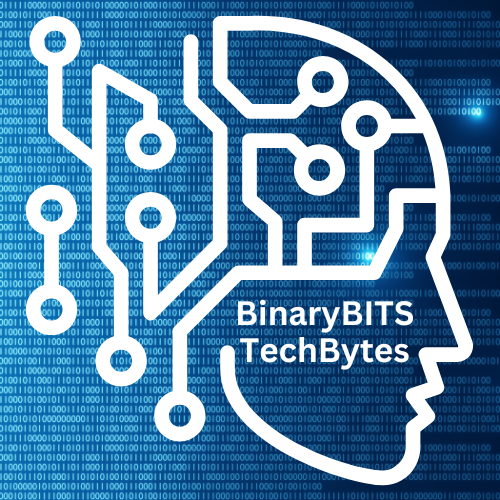Can AI Governance and Data Privacy Coexist in the Digital Age? My Perspective
At first glance, AI governance and data privacy may seem opposed. One focuses on progress, while the other emphasizes restraint. However, these two concepts can highly complement each other and, in my opinion, are essential for a balanced approach to technology.

With AI breaking down our door at such an alarming pace , the mix of AI rules and data privacy is highly important. With AI growing so fast, we're at a key point. As new tech pops up, the way we handle these challenges will decide our society's future.
The surge in AI development has led to an explosion of data collection. According to a report from Statista, the global big data market is projected to surpass $103 billion by 2027. This staggering growth raises important questions about how we can protect personal information while harnessing AI's potential. Let me shed some light on the relationship between AI governance and data privacy, and how they can coexist effectively.
Understanding AI Governance
AI governance is all about the rules and guidelines that help us use and manage AI technologies. These rules make sure AI systems follow ethical standards, especially when they're dealing with personal data.
The primary components of AI governance include accountability, transparency, and fairness. For instance, the European Union's AI Act classifies AI applications based on their risk level, specifically identifying high-risk applications such as biometric identification. This approach aims to ensure that technologies operate responsibly while still allowing for innovation. By providing clear guidelines, it encourages organizations to be more conscientious about how they use data.
The Importance of Data Privacy
Data privacy refers to how personal information is managed and protected. As concerns over surveillance and data breaches grow, maintaining strong data privacy is vital. A staggering 71% of consumers express concerns about how their data is used, according to a 2021 survey by the International Association of Privacy Professionals.
Trust is at the heart of data privacy. Consumers are more likely to share their information when they feel secure that it will not be misused. Companies like Apple and Microsoft have prioritized transparency in their data privacy policies. Apple, for instance, highlights its commitment to minimizing data collection, promoting user privacy as a key selling point.
Yet, the efficiency of AI in processing large quantities of data can lead to risks that threaten individual privacy. Striking a balance between innovation and the need for privacy is an ongoing challenge.

The Synergy Between AI Governance and Data Privacy
At first glance, AI governance and data privacy may seem opposed. One focuses on progress, while the other emphasizes restraint. However, these two concepts can highly complement each other and, in my opinion, are essential for a balanced approach to technology.
A well-defined AI governance framework can strengthen data privacy. By establishing clear rules for how AI systems interact with personal data, organizations can implement best practices that protect users. For instance, transparency can play a crucial role. By openly sharing how data is collected, utilized, and safeguarded, businesses earn consumer trust.

Challenges in Harmonizing AI Governance and Data Privacy
Despite the potential for synergy, uniting AI governance and data privacy faces significant hurdles. One major issue is the rapid pace of technological advancement. Many regulatory frameworks struggle to keep up with the speed at which AI develops. A 2022 report by McKinsey stated that AI technology is advancing at a speed three times faster than privacy regulations can adapt. That's a staggering statistic.
Additionally, dealing with global rules for data privacy and AI is a huge headache. Different countries have their own rules and standards, making it a real mess of inconsistencies that can lead to data misuse. Take the GDPR in Europe, for example. It's all about strict data privacy rules to keep people's personal info safe and make sure there's transparency in data collection and use. These rules mean companies have to get clear permission from users before handling their data, let people access and delete their personal info, and face big fines if they don't follow the rules.
On the flip side, a lot of places, especially in parts of Asia and North America, have more relaxed rules about data privacy. This difference can cause big headaches for tech companies working internationally, as they have to deal with all these different standards. For instance, a tech company doing business in both the European Union and the U.S. might find itself in a tricky spot. They have to meet the strict GDPR rules in the EU while also following the looser data practices in the U.S. This not only bumps up their costs because they need a bunch of legal and compliance policy, but it also ups the chance of accidental slip-ups, which can lead to hefty fines and a hit to their reputation.
Not having a unified global approach to data privacy and AI rules makes things even tougher. Sure, some international groups and agreements, like the OECD's guidelines on AI, try to create a common understanding, but the truth is, the enforcement is still pretty weak and all over the place between countries. This inconsistency can lead to companies taking advantage of these loopholes, picking places with looser rules to boost their efficiency and profits. These actions not only go against the spirit of protective laws like the GDPR but also put consumer trust and safety at risk worldwide.

Ethical AI and Consumer Consent
Consumer consent is another area of contention. Many AI applications rely on user consent, but current models can be misleading. Often, consumers unknowingly consent to complex terms and conditions, not fully grasping the implications. A 2020 study revealed that only 9% of users read privacy policies in full before consenting to data usage.
To transform how consent is approached, we must prioritize informed consent. This means simplifying language and making processes clearer so that consumers understand their rights. By implementing user-friendly methods for consent, we can cultivate a culture that values individual rights and promotes awareness about data privacy.
The Role of Technology in Bridging the Gap
Interestingly, technology itself can serve as a crucial bridge connecting the realms of AI governance and data privacy, fostering a harmonious relationship between the two. Innovations like differential privacy have become a game-changer, allowing AI models to dig into huge datasets and get useful insights without exposing anyone's identity. It does this by adding a bit of randomness to the data analysis, so the results from AI models don't spill the beans on any one person. This approach cleverly hides personal data, making it incredibly difficult to link specific results back to any individual.
This approach not only meets the stringent requirements of governance frameworks that demand accountability and transparency in AI systems, but it also upholds and prioritizes user privacy. By implementing differential privacy, organizations can assure users that their personal information is protected, thereby fostering trust and encouraging more individuals to engage with AI technologies. Furthermore, the integration of such privacy-preserving techniques into AI governance frameworks can lead to more robust compliance with regulations such as the General Data Protection Regulation (GDPR) and the California Consumer Privacy Act (CCPA), which emphasize the importance of data protection and user consent. Differential privacy not only aids in the ethical deployment of AI but also enhances the overall quality of the data being used.

Further still, blockchain technology has the potential to significantly address and resolve transparency issues that many organizations face today. One of the most compelling features of blockchain is its ability to maintain a permanent and immutable record of all data transactions and usage. This characteristic enables organizations to provide verifiable proof that they are adhering to established AI regulations and privacy standards, which is increasingly important in an era where data breaches and misuse are prevalent concerns. By leveraging blockchain, companies can create a transparent audit trail that stakeholders can trust, thereby enhancing their credibility and accountability.
For instance, companies like Everledger have successfully harnessed the power of blockchain to meticulously trace the origins of luxury goods. Everledger's innovative approach involves creating a digital ledger that records every transaction related to a luxury item, from its creation to its current ownership. This not only ensures that consumers can verify the authenticity and ethical sourcing of their purchases but also helps combat fraud and counterfeiting in the luxury market. By showcasing how technology can be utilized to enhance transparency, Everledger sets a powerful example of how blockchain can transform various industries.
Plus, blockchain's impact goes way beyond just luxury items. In areas like healthcare, finance, and supply chain management, being able to track and verify data with blockchain can really boost trust between consumers and partners. It gives a clear and unchangeable record of transactions, helping organizations show they're following the rules, cut down on legal problems, and promote transparency. As more companies catch on to the benefits of blockchain, we'll probably see more of them jumping on board, making business more open and trustworthy overall.
Charting the Course of AI Governance and Data Privacy
As we tackle these issues, working together takes the upmost importance. Getting technologists, ethicists, consumers, and policymakers on the same page is crucial for coming up with rules that balance AI's potential and risks. Regulations need to be flexible. Keeping the conversation going between different sectors will make sure the rules stay on point and effective. Plus, being nimble can help us keep up with new tech while protecting people's privacy.

In the end, we should aim for a setup where AI rules and data privacy go hand in hand, creating a digital world that respects user rights and sparks innovation.
Navigating the intersection of AI governance and data privacy in our chaotic world is complex but entirely feasible. With a proactive mindset and a commitment to ethical practices, we can create a future that protects individual rights while embracing the potential of AI. As we advance into a future filled with AI breakthroughs, we must advocate for regulations prioritizing personal data protection. Empowering individuals to control their information while reaping the benefits of AI technologies will truly allow us to confidently move forward, reflecting a society that values both innovation and individual rights.






